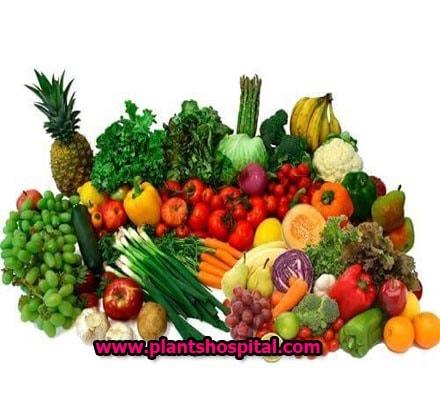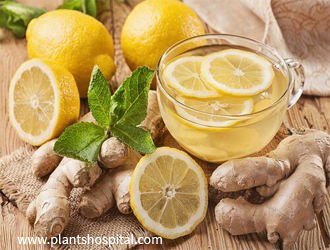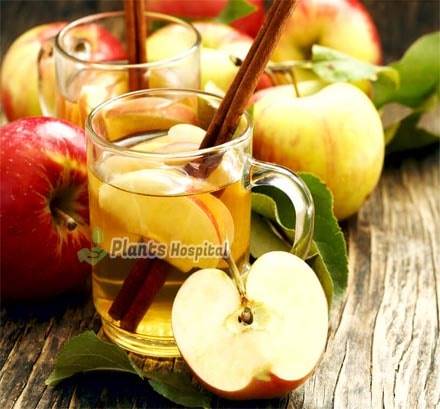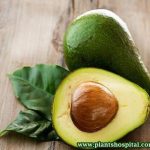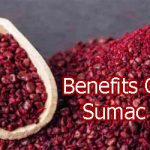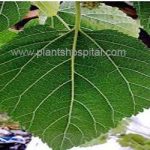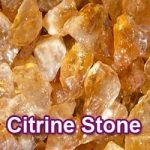Table of Contents
Foods That Cause Inflammation!
Inflammation-Drying Medicinal Plants And Cures
Inflammation is a natural process that allows the body to heal and protect itself from harm. However, if it becomes chronic, it negatively affects tissues and organs over time. For this reason, it can prepare the ground for the formation of many important diseases.
Poor eating habits can also lead to inflammation or exacerbate existing inflammation. Trans-saturated fat and high fructose corn syrup containing all kinds of processed and packaged prepared foods, fries, full-fat dairy products, white bread, rice, refined carbohydrates such as pasta are the main harmful foods that can cause inflammation in the body.
On the other hand, you can keep the inflammation under control by consuming antioxidant-laden foods, adding medicinal plants such as ginger and turmeric to your daily diet and applying regular cures.
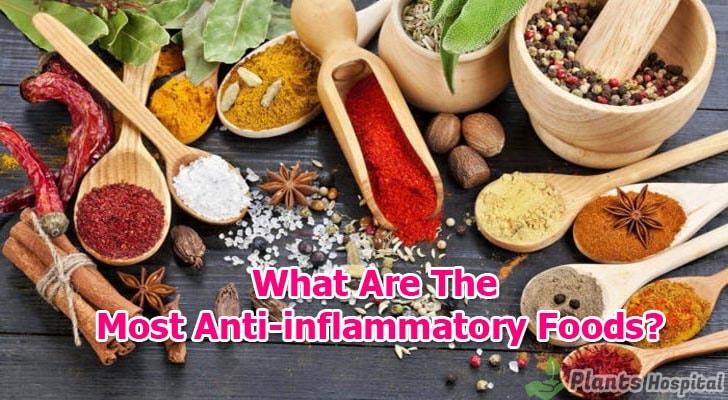
What Causes Inflammation And What Are Its Effects?
It is part of the immune system’s struggle to remove a substance such as harmful germs or thorns that sink into the finger from the body.
Without inflammation, infections and wounds never heal; they can even be fatal. Symptoms such as swelling, redness, and pain-throbbing can be disturbing, but it is an indication that the body is trying to heal itself and lasts for a short time.
But inflammation always does not help to the body. If the inflammatory process takes too long or occurs in areas where an inflammatory response is not required, it can lead to many diseases.
Chronic Inflammation
The short-term life-saving feature of acute inflammation, inflammation due to many factors becomes permanent in the long-term prepares the ground for many ailments.
If the immune system struggles with inflammation for a long time, it is vulnerable to both losing strength and can lead to autoimmune diseases such as Hashimoto (thyroid disease), intestinal inflammation, multiple sclerosis, and some joint rheumatism.
When it becomes a systematic inflammation process, lasting for months and years, the chemical weapons of white blood cells can trigger chronic diseases, this time. Some of these diseases include:
- Arteriosclerosis
- Heart disease
- Cancer
- Arthritis (joint inflammation)
- Metabolic syndrome
- Parkinson’s or Alzheimer’s
- Asthma or COPD
- Inflammatory bowel diseases (ulcerative colitis and Crohn’s))
- Diabetes (psoriasis)
- Eczema
Obesity can lead to chronic inflammation and thus the possibility of developing the above diseases. Also, diseases such as tuberculosis (tuberculosis), peridontitis (advanced gingivitis), active hepatitis B, hay fever (allergic rhinitis) can cause chronic inflammation.
The extent and effects of chronic inflammation may vary depending on the source of the inflammation and the body’s ability to repair and overcome the damage. Chronic inflammatory diseases are the most important cause of death in the world.
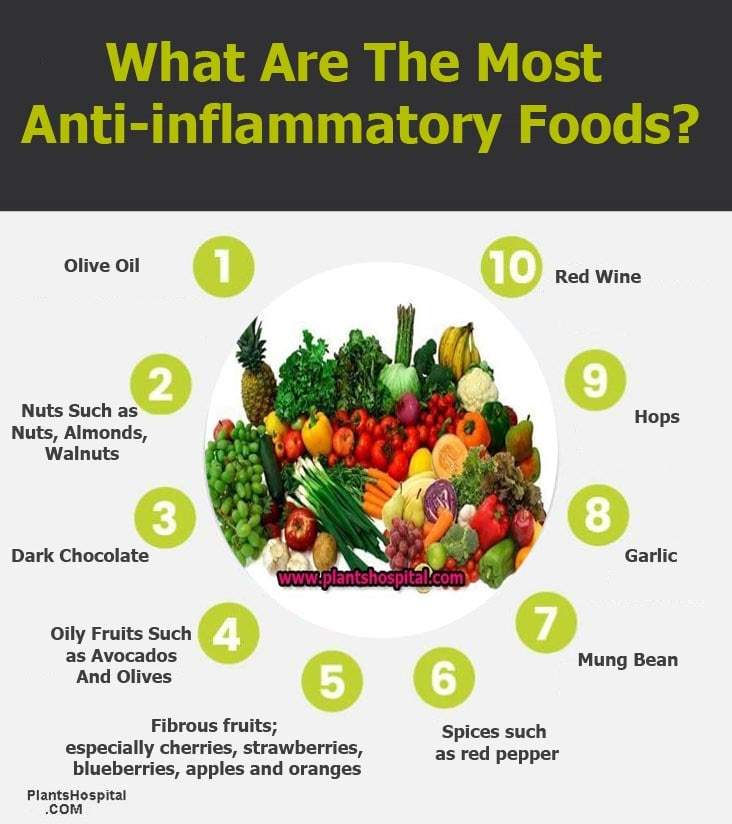
Which Foods Cause Inflammation?
Unhealthy-unbalanced eating habits increase the risk of inflammation in the body and can chronicle the current inflammation process and develop serious health problems. The most important nutrients that trigger inflammation in our body:
1. Refined (processed-simple) Carbohydrates
Flour products such as white bread, white potatoes (such as mashed potatoes or fries) and processed, ready-to-eat foods such as crackers, cookies are refined carbohydrates and have lost most or all of their nourishment and fiber. Unprocessed high-fiber carbohydrates should be consumed balanced.
Margarines And Trans Fats
Processed and packaged foods containing trans fats, such as soybeans and corn oil, all trigger inflammation.
These fats, pizza, hamburgers, ready-made foods such as pastry, chips, popcorn, fried potatoes, biscuits, chocolate, crackers, such as junk food, frozen meals and mayonnaise are also used. Margarines produced from vegetable-animal fats and products produced with them are objectionable. Also;
~ Full Milk Dairy Products: Milk cream, cheese, etc.
~ Processed Red Meat: Processed meats such as meatballs, salami, sausage; also poultry skin
~ Fries: Potatoes, cauliflower, meat, fish, etc.
~ Ready Drinks: Fruit juices, iced teas, acid drinks.
~ And excessive alcohol consumption can trigger inflammation in the body.
Monosodium glutamate (MSG) is a flavor-enhancing food additive commonly found in ready-made Asian dishes and soy sauces.
It can also be added to fast food, ready-made soups, and soup mixes, salad dressings and deli meats. When these foods are consumed, they can trigger chronic inflammation and affect the liver. See what it contains before buying a product.
How is Inflammation Removed From The Body?
Nonsteroidal anti-inflammatory (such as aspirin) and corticosteroid drugs may be used in medical treatment. Changing diet and lifestyle habits, on the other hand, can help eliminate all inflammation triggers and reduce chronic inflammation.
What Are The Most Anti-inflammatory Foods?
- Olive oil
- Leafy vegetables such as cabbage, brussels sprouts, broccoli, cauliflower, spinach and tomatoes
- Oily fish such as salmon, sardines, and mackerel
- Nuts such as nuts, almonds, walnuts
- Dark chocolate
- Oily fruits such as avocados and olives
- Fibrous fruits; especially cherries, strawberries, blueberries, apples and oranges
- Hops
- Mung bean
- Garlic
- Spices such as red pepper
- Green tea
- Red wine (1 glass per day for Women, 2 glasses for men)
- Supplements such as fish oil, curcumin (a component of turmeric)
- All foods and supplements containing micronutrients such as magnesium, vitamin D, vitamin E, zinc and selenium.
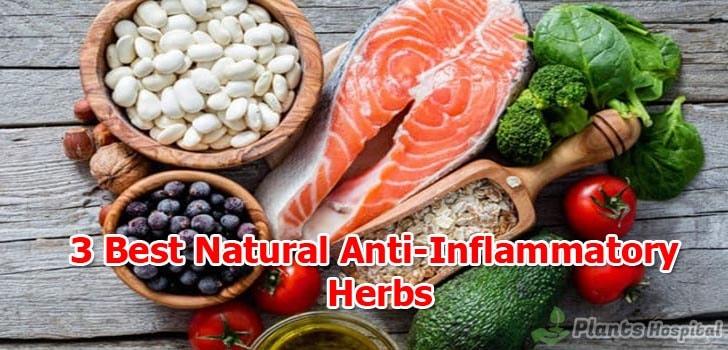
3 Best Natural Anti-Inflammatory Herbs
Ginger
Ginger has been used for hundreds of years to treat indigestion, constipation, colic and other gastrointestinal problems as well as rheumatoid arthritis pain. With a cure that you can easily apply, you can keep chronic inflammation away from your body.
Ginger Cure: 1.5 cups of water boiled into a piece (about 4 gr.) discard the root ginger and simmer for a further 5 minutes.
Drain and drink on an empty stomach 15 minutes before breakfast. You should apply this cure for 21 days. If you want you can apply every month. You can also add powdered ginger foods and beverages like spices.
Read More: Ginger and Ginger Tea: Health Benefits, Uses, Side Effects and Warning
Turmeric
Curcumin substance found in turmeric is effective in the treatment of many diseases and disorders, including inflammation. Consuming turmeric regularly every day strengthens the body’s immune system. It provides resistance and resistance against inflammation. It can be added to soups and dishes as a seasoning.
Turmeric Cure: After boiling a glass of water, throw a pinch of turmeric and cover to brew thoroughly. Drink warm on an empty stomach every morning.
Read More: 11 Proven Health Benefits Of Turmeric & Turmeric Water & Turmeric Tea
Cinnamon
Cinnamon is one of the most powerful anti-inflammatory plants besides its many benefits. It can be used as a spice in all homemade milky and floured desserts. Sliced apples can be sprinkled over fruits such as bananas.
1 spoon can be eaten on an empty stomach every morning, like paste mixed with honey. It can be added to all herbal teas and can also be made tea alone. Consumption at regular intervals keeps the body strong against external agents and shortens or prevents inflammation process.
Read More: Cinnamon And Cinnamon Tea Health Benefits, Uses, Side Effects And Warning
What Are The Natural Remedies For Breast Cancer?
Although the development of inflammation, breastfeeding can help prevent inflammation, but it is important to make sure that the breasts are completely emptied during breastfeeding and that the baby is properly anchored to the chest. Breastfeeding positions if necessary should be changed.
Don’t stop breastfeeding your baby. If breastfeeding does not happen, it is necessary to empty milk by hand or pump.
Personal Care: Rest a lot, wash your nipples with warm, clean water after each breastfeeding and use the creams recommended by the doctor. Drink about 2 liters of water a day and rest frequently.
Cure of Breast Inflammations
Cabbage leaves at least 30 min. keep in the fridge and wrap your chest with cold leaves. Replace with a new one as leaf loses coldness and do this several times until is completely free of inflammation.
Mastitis usually occurs in the first few weeks of mothers breastfeeding, but can also be seen afterward. Early treatment is very important to prevent complications. For this reason, is useful to see a doctor.

